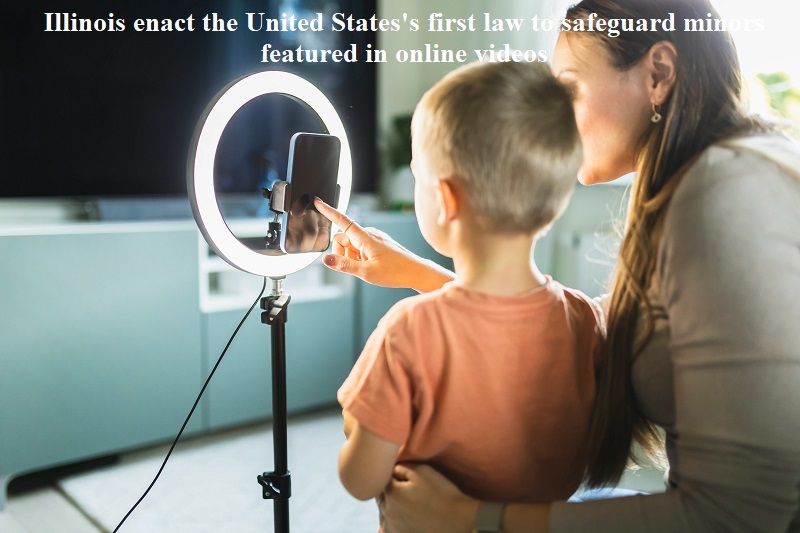
Recognizing the growing concerns surrounding the potential exploitation of young ‘influencers’ on various social media platforms, the state of Illinois has taken a significant step by becoming the first in the United States to enact a law designed to protect minors featured in online videos and ensure their fair compensation.
The inspiration for this legislation stemmed from the advocacy efforts of Shreya Nallamothu, a 16-year-old resident of Normal, Illinois, as reported by CNN. Nallamothu’s concerns emerged during the pandemic as she observed a rising trend of children appearing in family vlogs on social media. She realized that these videos often involved sharing private and intimate moments on the internet, which prompted her to take action.
Impelled by Nallamothu’s initiative, Illinois Governor J. B. Pritzker recently signed an amendment to the state’s Child Labor Law. This new law, among other provisions, grants teenagers above the age of 18 the ability to take legal action against their parents if they were featured in monetized social media videos without proper compensation. These rights are reminiscent of the rights granted to child actors.
The foundation of this law harks back to the “Jackie Coogan’s Law” of 1936, formulated to prevent parents from exploiting the earnings of child actors.
Effective from July 1, 2024, parents in Illinois will be required to allocate 50 percent of the earnings generated from the content of a video into a blocked trust fund designated for the child ‘influencer’. The specific amount allocated will depend on the child’s screen time in the video. For instance, if a child appears in 50 percent of a video, they will be entitled to receive 25 percent of the earnings. Similarly, for a video where their participation is at 100 percent, they will receive 50 percent of the earnings.
However, this rule applies only when a child’s appearance constitutes over 30 percent of the shared vlogs within a one-year period.
Senator Dave Koehler, in conversation with CNN, emphasized the importance of balancing compensation for parents and child influencers. He underscored that while parents deserve recognition for their role, the child’s rights should not be overlooked.
In recent times, YouTube parent vloggers and social media influencers have been increasingly sharing intimate details of their lives through frequent videos. These videos often feature children, yet there has been no legal requirement compelling parents to share the earnings with their children.
Moreover, child influencer accounts, which can yield substantial earnings of up to $20,000 for sponsored posts, rarely translate into direct benefits for the children themselves due to age restrictions on social media platforms.
Senator Koehler highlighted the parallel between this situation and that of child actors, stating, “If money is being made and nothing is set up for the children, it’s the same thing as a child actor.”
Experts welcomed this legislation as a long-overdue step in the right direction. Jessica Maddox, an assistant professor studying social media influencer communities, expressed optimism that other states in the US would follow Illinois’ lead.
Maddox emphasized the need for the law to keep pace with technology, as social media-based labor and careers have become legitimate sources of income. She stressed that it’s crucial to ensure minors are not vulnerable to exploitation as the landscape of social media continues to evolve.

Post Your Comments